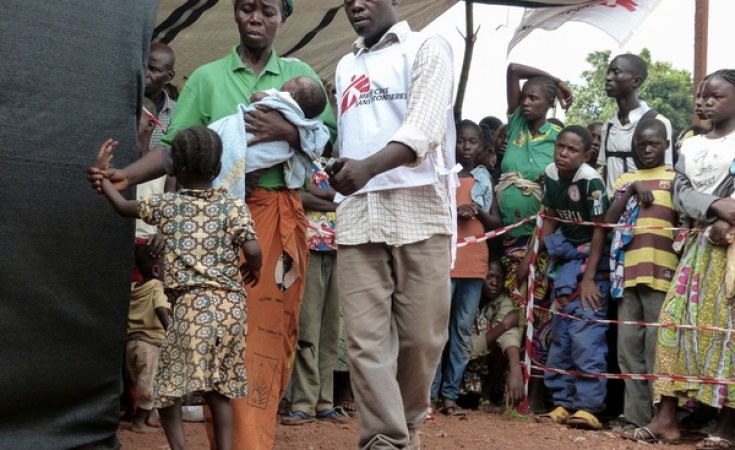Cape Town — Amid fears that the conflict in the Central African Republic (CAR) could descend into a genocide, a senior member of the Obama administration's foreign policy team says the time may come when the African-led peacekeeping mission has to be expanded to include more troops from outside the continent.
In a briefing for journalists on Thursday, the United States ambassador to the United Nations, Samantha Power, said the focus of current efforts was bringing the African Union peacekeeping force up to its authorized strength of 6,000 troops, joining the 1,600 troops sent by France.
"It is a more complicated task than you would expect," she said. "We're getting toward that 6,000 number but there is still a pretty significant gap."
She said the question "as to whether the mission that is deployed will prove sufficient to [its] really daunting task" is one "we certainly are asking ourselves, and that the French and the Africans... are asking as well..."
In the same briefing, the assistant secretary of state for Africa, Linda Thomas-Greenfield, said the administration was also working closely with regional leaders to help create "a more effective transitional government." The aim was "an open, transparent process which will choose leaders who can carry the country forward to elections no later than February 2015."
Power and Thomas-Greenfield were conducting a telephonic media briefing with journalists across Africa and elsewhere after a December trip that included the Central African Republic.
Before Power entered government, she was best known for her research on why the U.S. has not intervened in the past to prevent genocide - particularly that in Rwanda in 1994.
The briefing, from New York and Washington, came as the United Nations humanitarian operations director, John Ging, told reporters in Geneva that "the elements are there for a genocide, there is no question about that."
Power said that on her visit to Bangui last month, she had experienced "a degree of deprivation and despair that was really very, very striking, and quite heart-breaking, and this is just one part of a greater humanitarian crisis... We are seeing a cycle of retribution and violence that is extremely alarming. It is a cycle that needs to be broken immediately..."
Asked by AllAfrica whether the mandate and nature of the International Support Mission in the Central African Republic (MISCA) were up to the task, she said there was no question that the mandate was sufficient:
"It is the most robust mandate that we can give out of the Security Council [empowering peacekeepers to take] … all necessary measures...The challenge of course is getting a sufficient number of troops in there quickly."
Once the MISCA force is fully deployed, she continued, "At that point we would also be asking ourselves whether the troops-to-task ratio is the right one... It may well be that as the situation evolves, the [United Nations] Secretary-General, the African Union and others come to the Security Council and say we need to expand the pool of troop contributors from whom we can draw for this mission."
She noted that African peacekeeping capacity was stretched by deployments in Mali, Somalia and the expansion of the mission in South Sudan: "African countries are being asked to do an awful lot right now to help enforce these mandates and help protect civilians on the continent."
In the CAR, "you're seeing the [peacekeeping] force congeal more and more each day. But it is not the case that the militia... are deterred yet by what they've seen. You're seeing these cycles of retribution and longing for vengeance drive atrocities on an ongoing basis... there are atrocities being committed...
"We are definitely in an active review constantly to see what more can we do to try to shore the gap between what we've put in play up to this point and what might be needed to truly calm tensions there," Power said.


